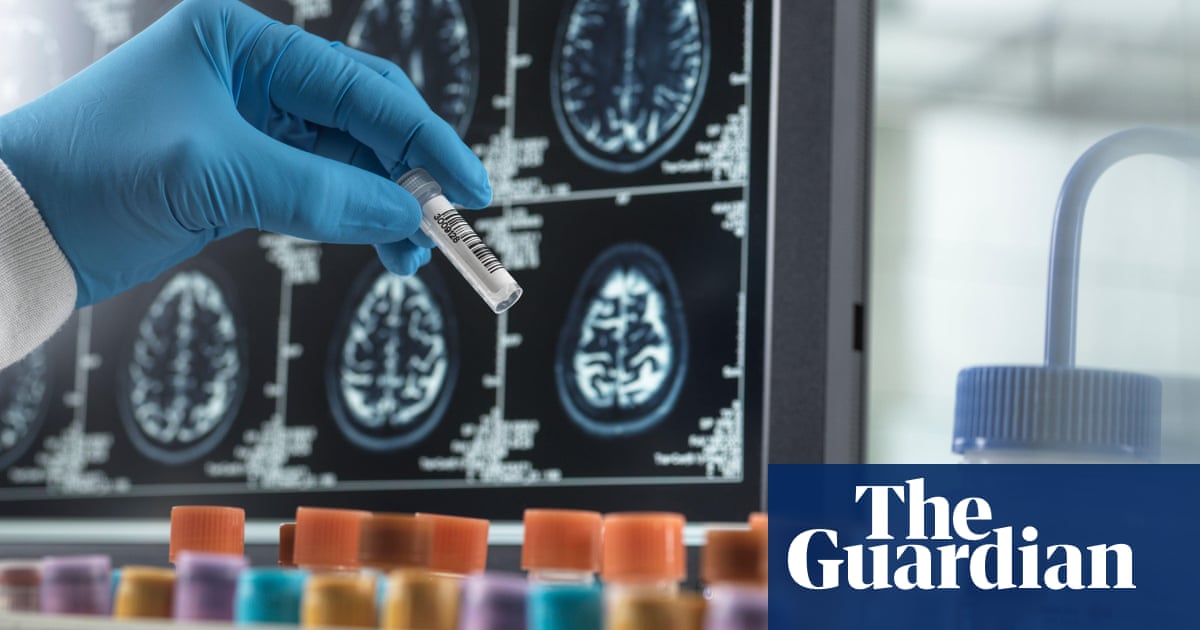Thousands of people across the UK who are worried about their memory will receive blood tests for dementia in two trials that doctors hope will help to revolutionise the low diagnosis rate.
Teams from the University of Oxford and University College London will lead the trials to research the use of cheap and simple tests to detect proteins for people with early stages of dementia or problems with cognition, with the hope of speeding up diagnosis and reaching more people.
Currently, getting a formal diagnosis in the UK relies on mental ability tests, brain scans or invasive and painful lumbar punctures, where a sample of cerebrospinal fluid is drawn from the lower back.
About 1 million people are living with the condition in Britain, and this is expected to rise to about 1.7 million by 2040 – with potentially grim consequences. In 2022, dementia took the lives of 66,000 people in England and Wales, and it is now the leading cause of death in Britain, with Alzheimer’s accounting for two-thirds of cases.
Patients and their families have been reported to wait for up to four years to get an appointment and the results, according to charities. More than one in three people living with dementia in England are yet to receive a formal diagnosis.
The tests are highly effective in research settings, so if they prove as useful in real life, they could make the diagnosis of Alzheimer’s more accessible.
They could provide results to patients much sooner and accelerate the introduction of new Alzheimer’s drugs that rely on early diagnosis. The trial will help determine if they can be rolled out routinely on the NHS.
Fiona Carragher, the director of research and influencing at the Alzheimer’s Society, said the reliance on specialised tests had led to “unnecessary delays, worry and uncertainty” that meant people often could not access the care they needed early on.
“Dementia is the UK’s biggest killer, yet a third of people living with dementia don’t have a diagnosis, which means they’re not able to access care and support. At the moment, only 2% of people with dementia can access the specialised tests needed to demonstrate eligibility for new treatments, leading to unnecessary delays, worry and uncertainty,” she said.
The research teams are sponsored by Alzheimer’s Research UK and the Alzheimer’s Society, with £5m of funding from the People’s Postcode Lottery.
Dr Sheona Scales, the director of research at Alzheimer’s Research UK, said: “We’ve seen the enormous potential that blood tests are showing for improving the diagnostic process for people and their loved ones in other disease areas. Now we need to see this same step change in dementia, which is the greatest health challenge facing the UK.
“It’s fantastic that through collaborating with the leading experts in the dementia community, we can look to bring cutting-edge blood tests for diagnosing dementia within the NHS. And this will be key to widening access to groundbreaking new treatments that are on the horizon.”
More than 50 memory clinics across the UK will be offering blood tests to about 5,000 volunteers as part of the five-year trial.
Jonathan Schott, the chief medical officer at Alzheimer’s Research UK, will lead a trial on the most promising blood biomarker in tests on 1,100 people across the UK.
The second trial will test for multiple forms of dementia, including Alzheimer’s disease, vascular dementia, frontotemporal dementia and dementia with Lewy bodies on about 4,000 people.







